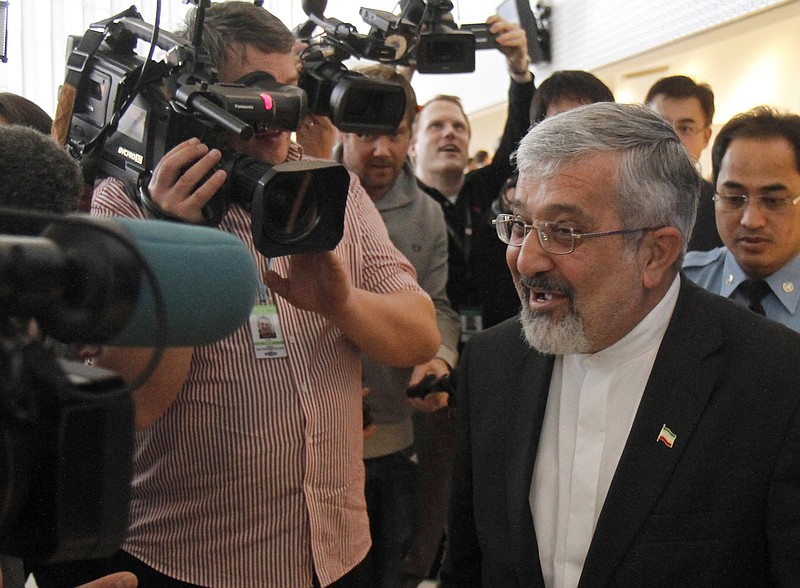VIENNA (AP) - Three days of protracted negotiations held under the specter of war highlighted the diplomatic difficulties ahead for nations intent on ensuring that Iran is not developing nuclear weapons.
In a statement Thursday that was less than dramatic, six world powers avoided any bitter criticism of Iran and said diplomacy - not war - is the best way forward.
The cautious wording that emerged from a weeklong meeting of the U.N. nuclear agency reflected more than a decision to tamp down the rhetoric after a steady drumbeat of warnings from Israel that the time was approaching for possible attacks on Iran to disrupt its nuclear program.
Indeed, the language was substantially milder than the tough approach sought by Washington and allies Britain, France and Germany at the International Atomic Energy Agency's 35-nation board meeting. Agreement came only after tough negotiations with Russia and China.
That could spell trouble on any diplomatic path ahead.
Russia, China and the four Western nations have agreed to meet with Iran in another effort to seek a negotiated solution. But with East-West disagreements within the group greater than ever, it could be difficult for the six to act in coordination at those talks.
A previous series of talks between the six and Iran ended in failure, the last one more than a year ago in Istanbul, Turkey. But the issue of six-power unity was never tested during those talks, because Tehran refused even to consider discussing concessions on its nuclear program.
That could change as Russian and Chinese irritation grows with what the two consider unwarranted tough and unilateral sanctions recently imposed on Iran by Washington and the European Union. Tehran might try to exploit the rift by offering a compromise that Moscow and Beijing would likely welcome but the West would proclaim meaningless.
Thursday's statement indicated that the West was willing to go some ways to maintain at least a semblance of six-power unity.
It refrained from calling out the Islamic Republic for refusing to cooperate with the IAEA's probe of allegations that it secretly worked on components of a nuclear arms program.
Instead it put the onus both on Iran and the IAEA to "intensify their dialogue" to resolve the four-year standoff. And indirectly countering weeks of Israeli saber-rattling, it emphasized "continued support for a diplomatic solution to the Iranian nuclear issue."
Returning to Jerusalem from intensive talks in Washington, Israeli Prime Minister Benjamin Netanyahu said his government will not allow Iran to obtain atomic bombs but prefers a peaceful solution to the issue
"I hope that Iran chooses to part from its nuclear program peacefully," Netanyahu said, adding, "It is forbidden to let Iran arm itself with nuclear weapons, and I intend not to allow it."

